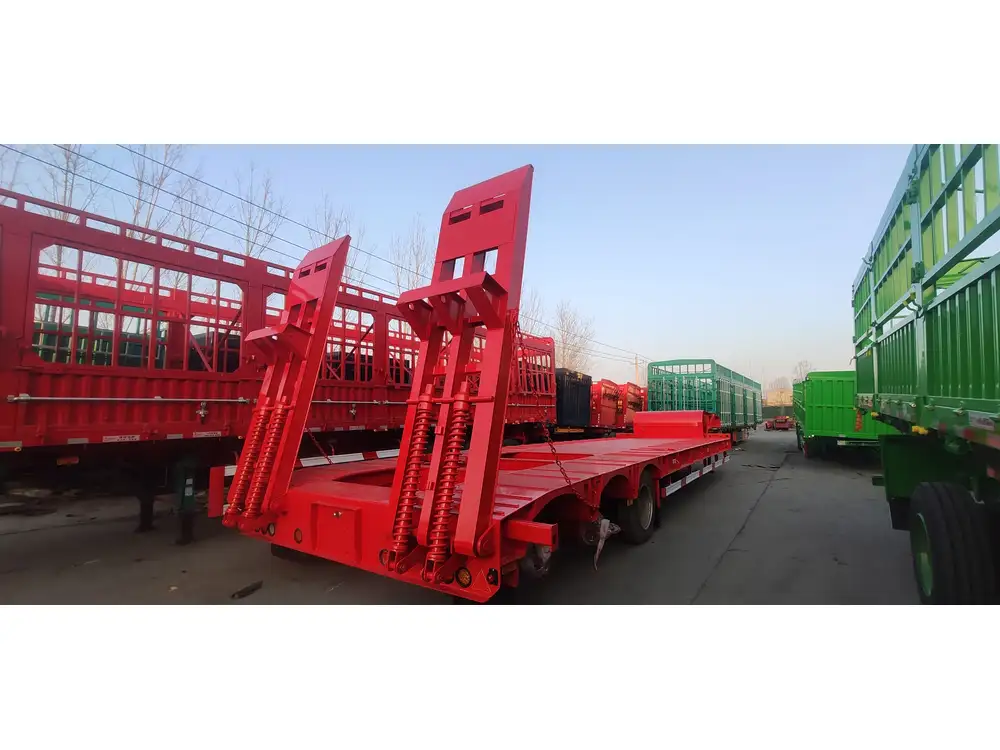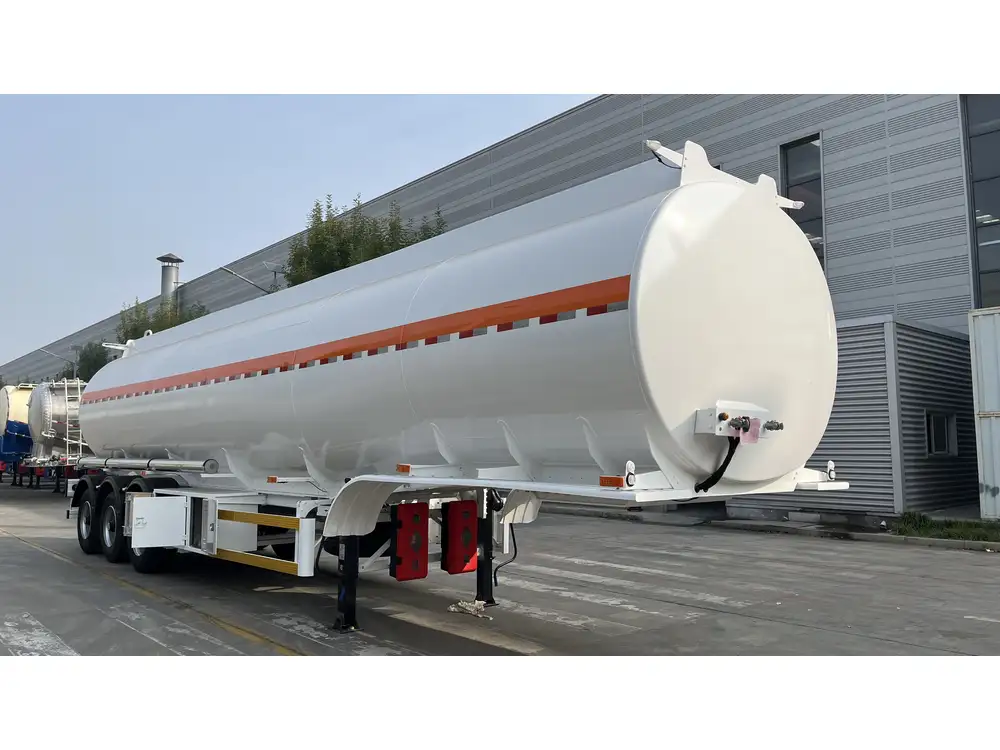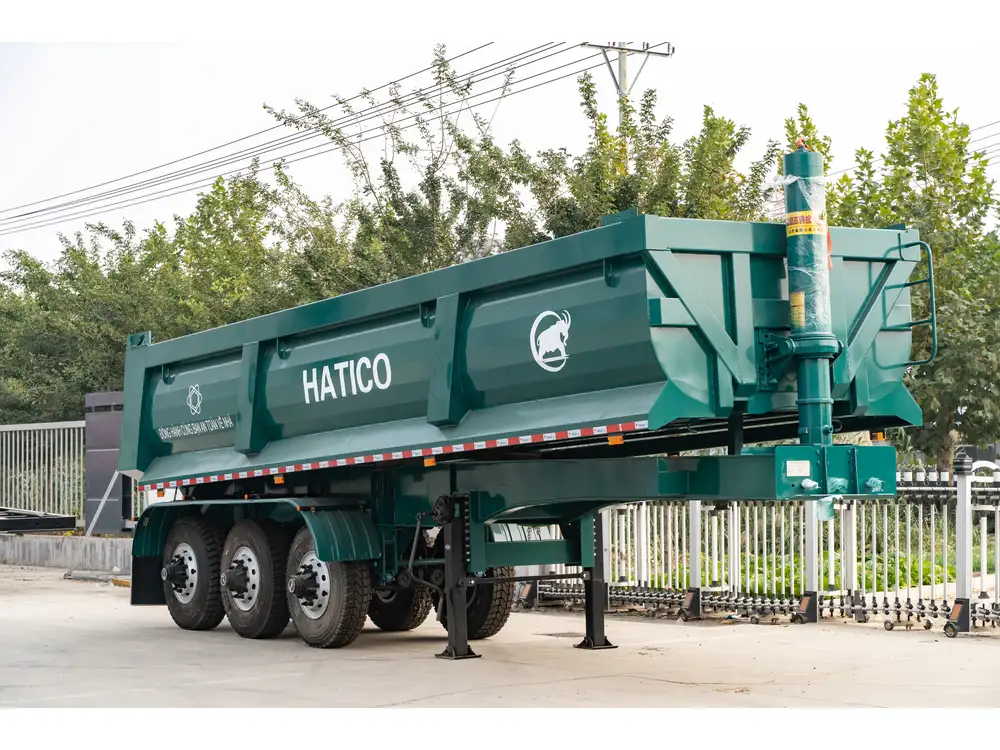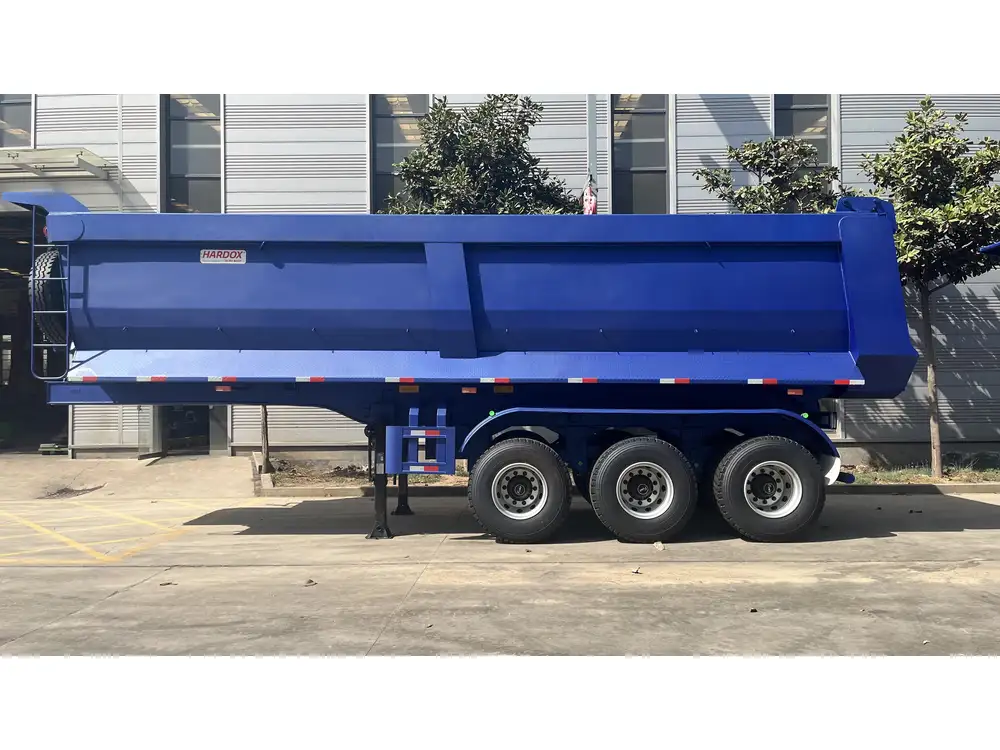In the modern landscape of transport and logistics, the evolution of trailer technology plays a pivotal role. Among various trailer categories, the self-contained trailer has emerged as a crucial solution for many sectors, including agriculture, construction, and mobile business operations. This comprehensive guide dives deep into what self-contained trailers are, exploring their definition, functionality, and the myriad benefits they provide to users.
What is a Self-Contained Trailer?
A self-contained trailer is a mobile unit designed to operate independently, equipped with essential utilities such as power, water, and waste management systems. Unlike traditional trailers that require external supplies or support, a self-contained trailer includes all necessary amenities. This independence is particularly valuable in remote settings or locations without immediate access to infrastructure.
Characteristics of Self-Contained Trailers
| Feature | Description |
|---|---|
| Power Source | Often equipped with batteries or generators for energy supply. |
| Water Supply | Includes tanks for freshwater and facilities for waste disposal. |
| Heating/Cooling Systems | Climate control systems ensuring comfort in varying weather conditions. |
| Transportation | Designed to be towed by vehicles, providing mobility and flexibility. |
| Size and Layout | Available in various configurations to suit different user needs. |

Common Uses of Self-Contained Trailers
Self-contained trailers find applications across several industries:
Mobile Businesses:
- Food and beverage trucks utilize self-contained features to serve customers at different locations efficiently.
- Retail trailers offer a fully outfitted shopping experience.
Construction Sites:
- Temporary office trailers provide essential workspace away from main offices.
- Field operations use them as command centers equipped with technology.
Emergency Services:
- Disaster relief efforts deploy self-contained trailers as mobile clinics or shelters.
Recreational Vehicles:
- Camping or travel trailers provide full amenities for families on the road.
Healthcare:
- Mobile health units are equipped with medical facilities for underserved areas.
Detailed Functions of Self-Contained Trailers
Power Supply
The power system is a fundamental aspect of self-contained trailers. These units typically utilize a combination of solar panels, battery banks, or generators to ensure continuous energy supply. This self-reliance permits operations in off-grid locations, mitigating reliance on external power sources and enhancing versatility.

Water and Waste Management
Self-contained trailers feature built-in water tanks that can house considerable amounts of freshwater, catering to needs ranging from basic sanitation to complex industrial applications. Equally important is the waste disposal system, which handles both gray and black water. Users benefit from the ability to operate without frequent trips to appropriate disposal sites—critical in remote or temporary installations.
Climate Control
Equipped with heating and cooling units, self-contained trailers ensure user comfort across diverse environments. This is paramount for workers on job sites or families enjoying a vacation in varying climates. Users can engage in productive work or relaxation without external climate influences.
Advantages of Using Self-Contained Trailers

Increased Mobility
The most salient advantage of self-contained trailers is their mobility. Operating independently allows businesses to reach a broader customer base, particularly vital for food service or retail operations. Construction firms can relocate their offices with ease, adapting to shifting project requirements without major disruptions.
Cost-Effectiveness
Investing in self-contained trailers often results in long-term cost savings. Bundled amenities reduce the need for multiple suppliers or providers, helping to minimize recurring costs associated with electricity, water, and waste disposal. Additionally, maintaining self-contained systems is typically less expensive than managing external supply agreements.
Environmental Benefits
With advanced technological integrations, many self-contained trailers are now designed to be more eco-friendly. Energy-efficient appliances and renewable energy systems contribute to reducing carbon footprints. Water management technologies minimize waste, furthering sustainability in mobile operations.

Versatility and Customization
Manufacturers now offer a range of self-contained trailer designs suited for an array of applications, from food service to healthcare. Customization options allow users to tailor trailers to specific needs, enhancing operational efficiency. This versatility allows businesses to pivot quickly based on evolving market conditions or user demands.
Enhanced Comfort and Productivity
For long-term operations in remote areas, self-contained trailers deliver essential comfort features. Reliable climate control, office setup, and healthcare amenities ensure that users can focus on productivity without added stress from uncomfortable living or working conditions.
Comparison: Self-Contained Trailers vs. Traditional Trailers
To better understand the value of self-contained trailers, it’s helpful to compare their features directly to traditional trailers:
| Feature | Self-Contained Trailers | Traditional Trailers |
|---|---|---|
| Independence | Operates independently with all utilities included. | Requires external systems for power and water. |
| Comfort | Fully equipped with climate control and amenities. | Minimal facilities for basic transport. |
| Mobility | High mobility with essential features packed in. | Limited mobility; may need additional support. |
| Cost Efficiency | Reduced long-term operational costs. | Higher recurring costs due to reliance on external supplies. |
| Versatility | Adaptable to various needs across industries. | Generally fixed-use scenarios with limited applications. |

Key Considerations When Choosing a Self-Contained Trailer
When selecting the right self-contained trailer, potential users should consider several key elements:
Purpose and Usage: Clearly define the intended use of the trailer. Will it serve in a mobile business, construction, or recreation? Understanding specific demands is crucial.
Size and Capacity: Assess requirements regarding space for operations, crew, equipment, and supplies. The size must align with usage needs without being excessively large.
Utility Requirements: Evaluate the power, water, and waste management requirements of your operation. Ensure the trailer’s systems can accommodate these needs.
Portability: Determine how often and where the trailer will be towed. Factors such as towing capacity of the vehicle and road conditions should be assessed.
Budget: Consider both the initial purchase price and the long-term operational costs. Balancing features with budget constraints ensures a sound investment.
Maintenance of Self-Contained Trailers
Maintaining self-contained trailers requires routine checks and upkeep to ensure operational efficiency. Key maintenance areas include:
- Power Systems: Regularly check the battery condition or generator functionality to ensure reliable power output.
- Water Systems: Inspect tanks and pumps for leaks or blockages to maintain water quality and availability.
- Waste Management: Schedule regular waste disposal to prevent overflow issues and maintain hygiene.
- Heating/Cooling Systems: Service HVAC units at intervals recommended by manufacturers to ensure efficient climate control.
Conclusion
Self-contained trailers represent a valuable investment across various sectors due to their independence, versatility, and comprehensive functionality. By understanding their core features and advantages, potential users can make informed decisions that enhance operational efficiency, improve cost-effectiveness, and drive growth in mobile operations. As industries continue to evolve, embracing self-contained solutions will be instrumental in adapting to changing demands and locations, ensuring a competitive edge in today’s dynamic market.

FAQs
What is the biggest advantage of a self-contained trailer?
- The main advantage is their ability to operate independently, equipped with necessary utilities, which enhances mobility and reduces reliance on external suppliers.
Can self-contained trailers be customized?
- Yes, many manufacturers offer customization options to tailor the trailer features to specific operational needs.
How do I maintain a self-contained trailer?
- Regular maintenance involves checking power systems, inspecting water and waste management functionality, and servicing heating/cooling units according to manufacturer guidelines.
Are self-contained trailers eco-friendly?
- Many modern self-contained trailers incorporate energy-efficient technologies and sustainable practices aimed at reducing environmental impact.
By thoroughly understanding self-contained trailers’ features, benefits, and maintenance necessities, you will be better positioned to make educated decisions that align with your operational goals. These trailers hold significant potential to revolutionize how businesses operate in diverse environments, making them invaluable assets in contemporary transport and logistics.



